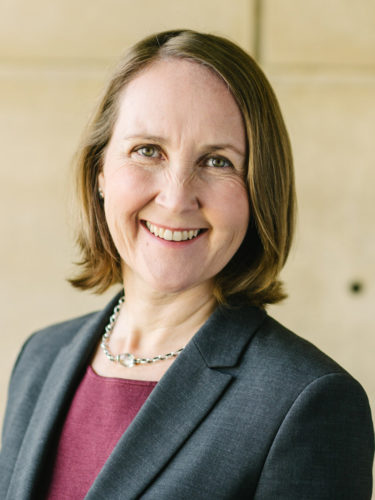From the Dean

Richard E. Lang Professor of Law and Dean of Stanford Law
In my spring letter in this magazine, I usually focus on the accomplishments of the past academic year and the sense of closure we feel as we send our newly minted JDs and graduate students off into the world to begin the next chapter in their careers. The annual graduation season is a time for both reflecting on myriad achievements and accomplishments and for turning a page and contemplating what the next year will bring to the SLS community. This year, I noted to myself as I sat down to write to you that I am filled with a new sense of optimism and an eagerness to plan for the law school’s future.
My optimism does not ignore the fact that COVID-19 has taken a huge toll, as reaching the grim milestone of 600,000 American lives lost reminds us. But as dean, I have witnessed the power of academic institutions—marveling at how our faculty, students, and staff have pivoted to meet the extraordinary challenges of the past 16 months, and the positivity and growth spurred by the pandemic. We have all learned so much, and many of these lessons will fuel the work done at the law school for years to come. This global pandemic has highlighted many problems in our society and reinvigorated the thought, scholarship, and work being done here at the law school.
This issue is chock-full of the evidence that great change is afoot in the legal world, and that SLS is deeply immersed in that change. The cover story looks at some of the work our faculty, centers, and alumni are engaged in to narrow the access-to-justice gap that prevents ordinary people from getting high-quality legal advice to help protect their rights and resolve disputes. As David Freeman Engstrom, professor of law, associate dean for strategic initiatives, and co-director of the Stanford Center on the Legal Profession, says in the feature, the time is right to look for opportunities: “Even before the COVID-19 pandemic, the American legal system was on the cusp of some really significant change. We are at a pivotal moment—and the pandemic, as with so many other aspects of American life, has only added to the disruptive potential.”
The progress we are seeing in changes in the area of access to justice owes much to the work of the late Deborah Rhode, the Ernest W. McFarland Professor of Law and founder and director of the Stanford Center on the Legal Profession, who trenchantly analyzed the crisis for four decades. Rhode established that unmet legal needs in America were pervasive, and that the legal profession, through its enforcement of unauthorized practice of law rules against low-cost competitors, was the major culprit. She foresaw the role technology could play in lowering the cost of services and increasing access.
Along with our faculty, our students have also been involved in exploring the use of technology in the area of access to justice. In the policy practicum COVID-19 and the Effect of Video Technology on Indigent Defense Services, co-taught by Robert Weisberg, Edwin E. Huddleson, Jr. Professor of Law and faculty co-director of the Stanford Criminal Justice Center, and Debbie Mukamal, its executive director, the SLS team partnered with the National Association of Criminal Defense Lawyers to recruit participants for the study.
Beyond the law school, we are inspired by the change-making work of our alum Teresa Leger Fernández, who won the November election for New Mexico’s 3rd Congressional District—and made history as the first Latina to represent the district and a member of New Mexico’s first delegation to the U.S. House of Representatives consisting entirely of women of color. We also look at the careers of Judge LaDoris Cordell, the first female Black judge in Northern California state court, and Gary Cohen, vice president of government affairs at Blue Shield of California. And much more.
We have all been through an extraordinary, life-altering experience over the past 16 months. It is gratifying to see how well our students, faculty, staff, and alumni have adapted and learned during this time, and to be able to share some of their work with you in this issue’s pages. I hope the optimism and promise described in these pages will lift your spirits, as they did mine.
